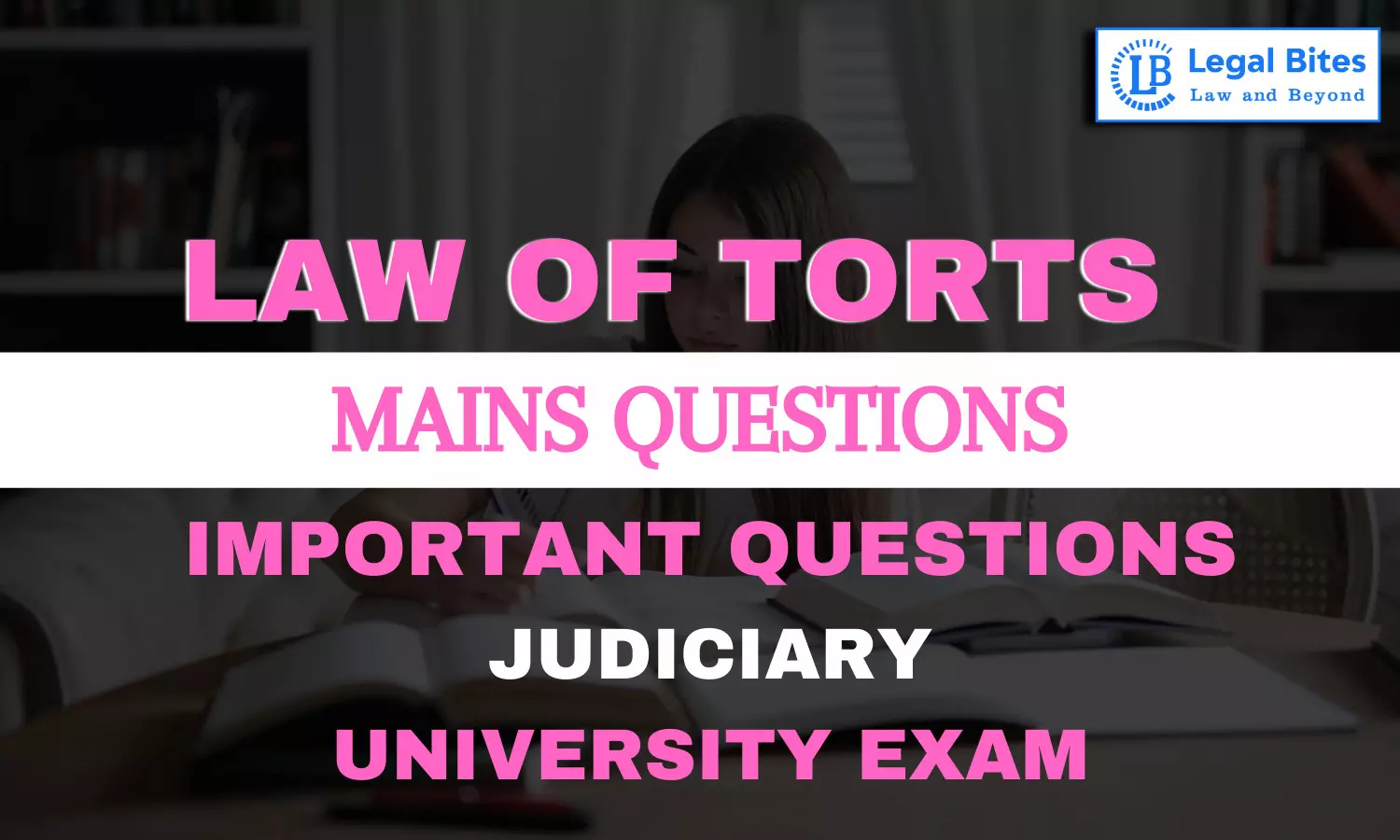Though, the concept of Tort is essentially based on the principle of Equity and Justice, but the essence of tortious liability lies in violation of legal right. Discuss.
Find the question and answer of Law of Torts only on Legal Bites.

Question: Though, the concept of Tort is essentially based on the principle of Equity and Justice, but the essence of tortious liability lies in violation of legal right. Discuss. [DJS 2011]Find the question and answer of Law of Torts only on Legal Bites. [Though, the concept of Tort is essentially based on the principle of Equity and Justice, but the essence of tortious liability lies in violation of legal right. Discuss.]AnswerThe concept of tort is based on the principle of equity...
Question: Though, the concept of Tort is essentially based on the principle of Equity and Justice, but the essence of tortious liability lies in violation of legal right. Discuss. [DJS 2011]
Find the question and answer of Law of Torts only on Legal Bites. [Though, the concept of Tort is essentially based on the principle of Equity and Justice, but the essence of tortious liability lies in violation of legal right. Discuss.]
Answer
The concept of tort is based on the principle of equity and justice, which seeks to provide a remedy to the victim for the harm suffered due to the wrongful act of another person. However, the essence of tortious liability lies in the violation of a legal right.
The term 'legal right' refers to the right recognized and protected by law. In the context of tort law, a legal right may be a right to bodily integrity, property, reputation, or privacy, among others. The violation of a legal right gives rise to a cause of action in tort, and the victim is entitled to seek compensation for the harm suffered.
One of the landmark cases that illustrate this point is Ashby v. White, (1703) 2 Ld Raym 938. In this case, the plaintiff was a qualified voter who was denied the right to vote by the defendant, who was the returning officer in the election. The defendant argued that he had acted on the orders of the candidate who was likely to benefit from the plaintiff's vote. The court held that the plaintiff was entitled to compensation for the violation of his legal right to vote, even if the defendant had acted in good faith. The court stated that "the right to vote is a right of the highest nature, and any attempt to violate it is a serious injury."
Another example is the case of Donoghue v. Stevenson, [1932] UKHL 100. In this case, the plaintiff consumed a bottle of ginger beer which contained a decomposed snail. She suffered from shock and gastroenteritis as a result. The plaintiff brought a claim of negligence against the manufacturer of the ginger beer, arguing that they had breached their duty of care towards her. The court held that the manufacturer owed a duty of care towards the ultimate consumer of the product and that they had breached this duty by failing to ensure that the product was safe for consumption. The court stated that the plaintiff's legal right to bodily integrity had been violated, and she was entitled to compensation for the harm suffered.
Though the concept of tort is essentially based on the principle of equity and justice, the essence of tortious liability lies in the violation of a legal right. The violation of a legal right gives rise to a cause of action in tort, and the victim is entitled to seek compensation for the harm suffered. The concept of legal rights is central to the development of tort law, and it plays a crucial role in ensuring that individuals are held accountable for their actions and that victims receive the compensation they deserve.

Mayank Shekhar
Mayank is an alumnus of the prestigious Faculty of Law, Delhi University. Under his leadership, Legal Bites has been researching and developing resources through blogging, educational resources, competitions, and seminars.
